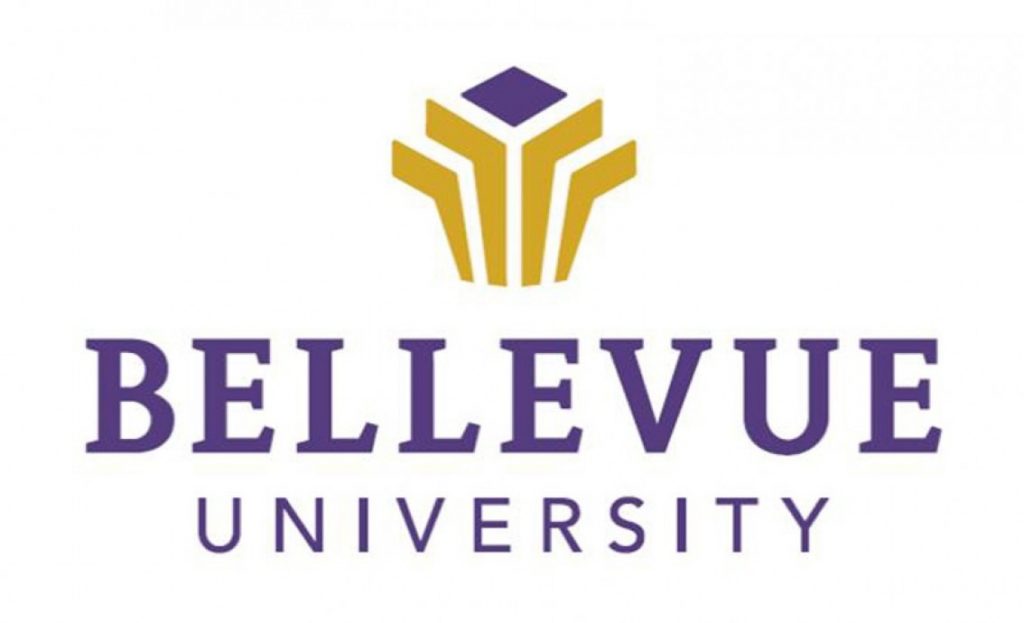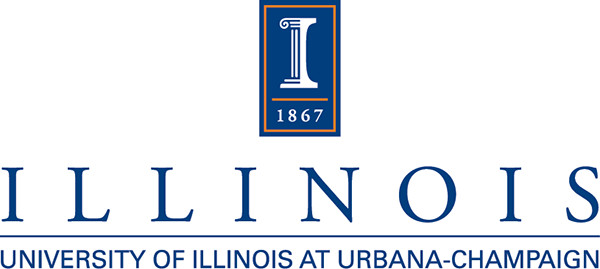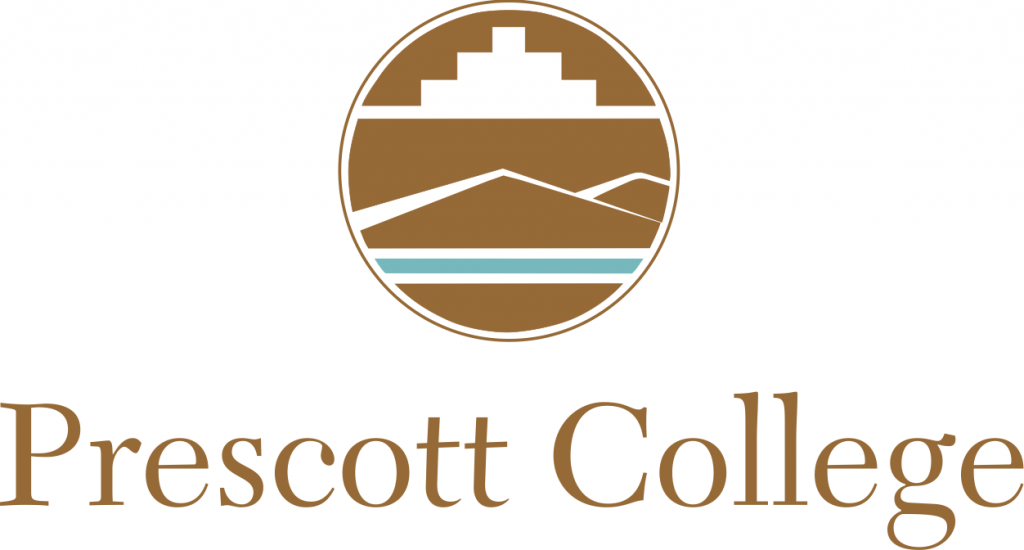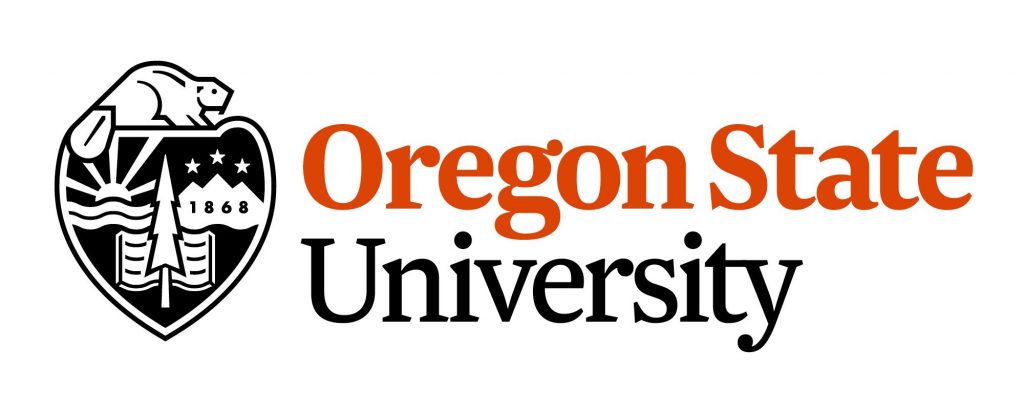Signing up for the best affordable online Bachelor’s in Natural Resources and Conservation degree programs will help young environmentalists save money while saving Mother Nature. Today’s growing digital education landscape includes several eco-friendly schools committed to preserving a healthy environment. High-value natural resources and conservation degree options online allow undergrads to reduce their carbon footprint by avoiding campus commutes. Meanwhile, students still learn vital information about restoring our vulnerable landforms, oceans, air supply, and minerals. According to The World Counts, humans extract 55 billion tons of resources from Earth each year. By 2020, it’s expected that bio-mass extraction will skyrocket by 50 percent to 80 billion. The Guardian voiced concerns that 1.8 billion people will lack freshwater access this decade. Further, scientists believe the 188.8 million tons of oil will only last 46.2 years and phosphorus will run out in 100 years. Getting an affordable distance education natural resources and conservation degree will prepare you for addressing dire depletion problems.
Our Methodology
Affordable Schools decided to research the best-value natural resources and conservation degree options online for green enthusiasts protecting our planet. We began by accessing the U.S. Education Department’s NCES College Navigator database. Our staff input advanced search criteria to locate four-year environmental bachelor’s majors for natural resources and conservation. We collected an initial group of 20 distance institutions with eco-friendly online programs. Our analysts weeded out all overpriced universities based on the 2018-19 average cost of full-time, in-state attendance. We sorted the colleges by awarding each cheap natural resources and conservation program one to five points based on this affordability rubric.
Points:
Under $7,500 – 5 Points
$7,500 to $15,000 – 3 Points
$15,001 and Above – 1 Point
Then, the AS Staff looked for affordable online natural resources and conservation degree offerings with optimal learner engagement. We evaluated the student-faculty ratios from NCES to determine how many undergraduates the average professor is assigned. Natural resources and conservation majors benefit from small classes where everyone joins into crucial climate change talks. Lower student-faculty ratios also correlate to more mentoring, hands-on research, and co-operative education. Our researchers strongly preferred ratios of 10:1 or less to ensure active involvement. We awarded the following points to cost-effective natural resources and conservation degree programs online.
Points:
10:1 or Less – 3 Points
11:1 to 15:1 – 2 Points
Greater Than 15:1 – 1 Point
Lastly, Affordable Schools dug deeper to determine student satisfaction levels by recording the 2018-19 average graduation rate.s as reported from NCES. Low-cost natural resources and conservation degree programs with high graduation rates above 50 percent were preferred. Graduation rates show concrete evidence of colleges’ ability to retain learners. Universities that graduate the majority of their students typically have the best curricula, amenities, and support services. When more students finish their bachelor’s in four to six years, there are also fewer concerns about wasted tuition and added loan debt. Our team gave another one to three points according to current graduation rates. We then calculated the point sums to profile our top-value natural resources and conservation degree options online in descending order.
Points:
More than 50 Percent – 3 Points
Between 30 and 50 Percent – 2 Points
Less than 30 Percent – 1 Point
Ranking the 15 Best Online Affordable Colleges for Natural Resources and Conservation Degree Programs
15. Bellevue University
Bellevue, NE

Total Points: 4
Program Website
Given a $200,000 Nebraska Environmental Trust Grant for its Sustainability Learning Lab, Bellevue University is a nonprofit, adult-oriented NSAA member founded in 1966 that’s endowed for $28.07 million to teach 10,304 Bruins from 50 states at a 27:1 student-faculty ratio. In 2011, Bellevue won a Chief Learning Officer Silver Excellence Award. In 2017, Bellevue earned the NSPA Scholarship Provider of the Year Award. The U.S. News & World Report ranked Bellevue University 230th for online bachelor’s degrees. Bellevue was picked America’s 203rd most conservative school on Niche, 12th best for veterans in Military Times, and 267th top value by College Factual.
Bellevue University snagged the last 15th spot among online affordable colleges for natural resources and conservation degree programs with a $7,827 price tag. On Cyberactive, the Natural Science Center of Excellence grants a cheap B.S. in Sustainability Management to learn environmentally conscious project strategies. Advised by Dr. Terrence Pinkerton, the 127-credit, HLC-accredited online degree integrates the Kirkpatrick Signature Series into 300-level major courses like Energy Technology. Prospective Bruins need one year of relevant STEM work experience or two science prerequisites. Graduates of this cheap online bachelor’s in sustainability management qualify for the Green Building Council’s premier LEED Green Associate exam.
Degree Options:
Bachelor of Science in Sustainability Management
In-State Tuition: $7,827
Out-of-State Tuition: $7,827
Student-Faculty Ratio: 27:1
Graduation Rate: N/A
14. Southern New Hampshire University
Manchester, NH

Total Points: 5
Program Website
Co-sponsoring the Halki Summit on Global Responsibility & Environmental Sustainability since 2012, Southern New Hampshire University is a nonprofit, coed NHCUC member that’s endowed for $16.7 million to employ 5,959 faculty teaching 90,955 Penmen across 13 countries with 54 percent completion. In 2017, Southern New Hampshire won an OLC Digital Learning Innovation Award. In 2019, SNHU earned the United States Distance Learning Association 21st Century Award. The U.S. News & World Report ranked Southern New Hampshire University 168th for social mobility. SNHU was named America’s 14th best for adults by Washington Monthly and 139th most diverse college on Niche.
Southern New Hampshire University is our 14th best affordable university for natural resources and conservation degree programs online despite the $31,136 annual cost. On D2L Brightspace, the College of Arts & Sciences delivers a best-value online Natural Resources and Conservation Concentration for the B.S. in Geoscience or B.S. in Environmental Science. Headed by Dr. Joseph Corbin, a 2011 Excellence in Teaching Award nominee, the 120-credit, NECHE-accredited track integrates eight-week Web courses like Global Climate Change and Waste Remediation. Undergrads with minimum 2.0 GPAs can transfer up to 90 credits. Penmen could also add the 21-credit Sustainability Certificate. This low-cost online bachelors in natural resources and conservation will prepare graduates for jobs such as a climate change analyst, environmental health specialist or an industrial ecologist.
Degree Options:
Bachelor of Science in Geoscience – Natural Resources and Conservation
Bachelor of Science in Environmental Science – Natural Resources and Conservation
In-State Tuition: $31,136
Out-of-State Tuition: $31,136
Student-Faculty Ratio: 24:1
Graduation Rate: 54 percent
13. University of Massachusetts-Amherst
Amherst, MA

Total Points: 5
Program Website
Highly regarded for its Fossil Fuel Divestment Campaign started in 2016, the University of Massachusetts-Amherst is a flagship public, land-grant AASCU member that’s endowed for $700 million to support 30,593 Minutemen across 239 degrees with 80 percent graduation. In 2014, UMass Amherst won a Second Nature Climate Leadership Award. In 2018, Amherst earned the Association for Advancement of Sustainability in Higher Education’s STARS Gold Award. The U.S. News & World Report ranked the University of Massachusetts-Amherst 20th for online bachelor’s programs. UMass Amherst was chosen America’s 115th most environmental school on Niche and 207th top value in Forbes.
The University of Massachusetts-Amherst landed 13th among online affordable colleges for natural resources and conservation degree options with $15,887 in-state tuition. On Blackboard Learn 9.1, the University Without Walls provides a high-value online B.A. in Sustainability Studies for 18 concentrations, including Wildlife Conservation, Water Resources, and Resource Economics. Incoming Minutemen with 12+ transfer credits and GPAs above 2.0 must apply before April 15th or October 1st. Directed by Dr. Curtice Griffin, the 120-credit, NECHE-accredited pathway entails 14-week courses like Soil Management and Climate Adaptation. There’s also a 12-credit Environmental Policy Certificate.
Degree Options:
Bachelor of Arts in Sustainability Studies
Bachelor of Science in Political Science
In-State Tuition: $15,887
Out-of-State Tuition: $34,570
Student-Faculty Ratio: 17:1
Graduation Rate: 80 percent
12. University of Illinois at Urbana-Champaign
Urbana, IL

Total Points: 5
Program Website
Pledging to become carbon natural by 2050 with the American College & University Presidents Climate Commitment, the University of Illinois at Urbana-Champaign is a flagship public, sea-grant BTAA member that’s endowed for $3.46 billion and affiliated with 30 Nobel Laureates to teach 49,339 Fighting Illini. In 2015, UIUC received the Illinois Governor’s Sustainability Award. In 2018, Urbana-Champaign accepted a Second Nature Climate Leadership Award. The U.S. News & World Report ranked the University of Illinois at Urbana-Champaign 259th for online bachelor’s education. UIUC was proclaimed America’s 20th top value in Money and 75th best environmental school on Niche.
The University of Illinois at Urbana-Champaign is Affordable Schools’ 12th best accredited college for natural resources and conservation degree studies online for $15,094 in-state. Since May 2011, the “Public Ivy” has offered a low-cost online B.S. in Earth, Society and Environmental Sustainability for College of Liberal Arts & Sciences transfers with 60 or more previous credits. Managed by Dr. Angela Kent, an Arnold O. Beckman Research Award recipient, the 60-credit, HLC-accredited completion program splits into two concentrations: Science in the Earth System or Society and Environment. After 12-week courses, learners lead capstone projects with the Institute for Sustainability & Energy. This earth, society and environmental sustainability online degree is the same quality education as the on-campus degree.
Degree Options:
Bachelor of Science in Earth, Society and Environmental Sustainability
In-State Tuition: $15,094
Out-of-State Tuition: $31,664
Student-Faculty Ratio: 20:1
Graduation Rate: 84 percent
11. Stevenson University
Owings Mills, MD

Total Points: 6
Program Website
Gifting $100 Reduce Your Hoofprint Challenge prizes through the Center for Environmental Stewardship, Stevenson University is a private, nonprofit AASHE member opened in 1947 that’s endowed for $89.9 million to educate 2,741 campus and 874 online Mustangs from 43 states with 56 percent completion. In 2014, its Environmental Club won the GreenFest Best Collaborative Program Award. In 2019, Stevenson had the Chesapeake Bay Trust Educator of the Year Award recipient. The U.S. News & World Report ranked Stevenson University 159th for online bachelor’s students. Stevenson was lauded America’s 89th top value by The Economist and 371st best small school on Niche.
Stevenson University is the AS Staff’s 11th most affordable college for natural resources and conservation degree majors online with a universal $36,242 rate. The Beverly K. Fine School of Sciences delivers a top-value B.S. in Environmental Science at Manning Center or partly online on Blackboard Learn 9.1. Overseen by Dr. Merrie Durmowicz, this 120-credit, MSCHE-accredited sequence blends eight-week hybrid courses from Geographic Information Systems to Freshwater Ecosystems. Juniors with 3.5 or higher GPAs qualify for the Biology Department Honors. Seniors of this online environmental science degree can secure for-credit internships like the National Wildlife Federation, Earthwatch Institute, and Clean Cities Coalition.
Degree Options:
Bachelor of Science in Environmental Science
In-State Tuition: $36,242
Out-of-State Tuition: $36,242
Student-Faculty Ratio: 14:1
Graduation Rate: 56 percent
10. Prescott College
Prescott, AZ

Total Points: 6
Program Website
Home to Yavapai County’s first LEED Platinum certified building with 100 percent renewable energy, Prescott College is an eco-friendly private, nonprofit liberal arts school established in 1966 that’s endowed for $1.49 million to educate 350 undergrads at a 9:1 student-faculty ratio. In 2017, Prescott won Arizona Forward’s Crescordia Environmental Excellence Award for the Salt River Project. In 2019, Prescott accepted the AAEE Committed to Environmental Education Award. The U.S. News & World Report ranked Prescott College 69th for social mobility. This top-value school was placed America’s 192nd most diverse university by College Factual and 88th top institution in Washington Monthly.
Prescott College starts our website’s top 10 online affordable colleges for natural resources and conservation degree courses with a $31,485 cost. On Moodle, the Global Campus starts an economical online B.S. in Environmental Studies, B.A. in Sustainability Management, and B.A. in Sustainable Community Development thrice yearly. Administered by Dr. John Flicker of the National Audubon Society, the 120-credit, HLC-accredited majors share common Web courses like Seed Plant Systematics and Conservation of Mammals. Prescott uniquely requires three-week field intensives where students can research the Grand Canyon, tackle Arizona Serve internships, visit the Kino Bay Center, and more.
Degree Options:
Bachelor of Science in Environmental Studies
Bachelor of Arts in Sustainability Management
Bachelor of Arts in Sustainable Community Development
In-State Tuition: $31,485
Out-of-State Tuition: $31,485
Student-Faculty Ratio: 9:1
Graduation Rate: 39 percent
9. Wilmington University
New Castle, DE

Total Points: 6
Program Website
Partnered with Hornsey Architects to build a 60,000-square-foot, LEED-certified Brandywine Campus in 2019, Wilmington University is a private, nonprofit NAICU member founded in 1968 that’s endowed for $92 million to serve 11,829 undergrad Wildcats from 80 nations at a 12:1 student-faculty ratio. In 2012, WilmU received the Blackboard Catalyst Award for Exemplary Online Course. In 2018, Wilmington won an ITC Award for Outstanding Student Support. The U.S. News & World Report ranked Wilmington University in the top 200 online bachelor’s institutions. WilmU was declared America’s 654th most liberal college on Niche and 258th best university by Washington Monthly.
Wilmington University finished ninth among the AS Staff’s online affordable colleges for natural resources and conservation degree programs that cost $11,210 per year. Switched to Canvas for Fall 2019, the College of Arts & Sciences has an inexpensive online B.S. in Environmental Science and Policy for conservationists to develop climate problem-solving skills. Outlined by Dr. Milton Muldrow, this cheap, 120-credit, MSCHE-accredited plan accelerates through eight-week STEM courses like Cultural Anthropology and The Green Revolution. Upperclassmen must achieve minimum 2.5 GPAs and six cooperative education credits. Wildcats could also pursue the 15-credit Environmental Sustainability Certificate.
Degree Options:
Bachelor of Science in Environmental Science and Policy
In-State Tuition: $11,210
Out-of-State Tuition: $11,210
Student-Faculty Ratio: 12:1
Graduation Rate: 24 percent
8. Oregon State University
Corvallis, OR

Total Points: 7
Program Website
Running the Environmental Molecular Biology Laboratory in Johnson Hall, Oregon State University is a public, sea-grant APLU member chartered in 1868 that’s endowed for $595.8 million to confer 370,379 credit hours to 30,896 Beavers across more than 200 majors with 67 percent completion. In 2013, Oregon State won the EPA People, Prosperity and Planet Competition. In 2016, OSU received the Bicycle Friendly University Silver Award. The U.S. News & World Report ranked Oregon State University third for online bachelor’s programs. OSU was decreed America’s 41st coolest school by the Sierra Club, 105th most environmental college on Niche, and 152nd top value in Forbes.
Oregon State University stands as Affordable Schools’ eighth best online accredited college for natural resources and conservation degree options with an $11,166 in-state figure. Placed top in the Journal of Conservation Biology, the School of Life Sciences launched an affordable B.S. in Natural Resources and B.S. in Environmental Sciences online on Canvas in 2014. Coordinated by Dr. Roy Haggerty, the 180-unit, NWCCU-accredited programs offer nine custom tracks, including Wildland Fire Ecology, Fish Conservation, or Ecological Restoration. Expect engaging 11-week courses like Landscape Analysis and Global Change. Also check out the 4+1 Accelerated Master of Natural Resources.
Degree Options:
Bachelor of Science in Natural Resources
Bachelor of Science in Environmental Sciences
In-State Tuition: $11,166
Out-of-State Tuition: $30,141
Student-Faculty Ratio: 17:1
Graduation Rate: 67 percent
7. Arizona State University
Tempe, AZ

Total Points: 7
Program Website
Renowned for its Julie Ann Wrigley Institute of Sustainability’s Global Drylands Center, Arizona State University is an innovative public, land-grant AASCU member formed in 1885 that generates a $4.3 billion impact and enrolls 103,530 Sun Devils in 17 colleges with a 19:1 student-faculty ratio. In 2015, ASU won an Arizona Forward Environmental Excellence Award. In 2018, Arizona State accepted the NACDA Sustainability Award. The U.S. News & World Report ranked Arizona State University 45th for studying abroad and 147th for social mobility. ASU was acclaimed America’s 11th greenest college in Sierra and 134th top environmental science program on Niche.
Arizona State University is our list’s seventh most affordable university for natural resources and conservation degree studies online with an in-state average of $10,822. Opened in 2006, the low-cost School of Sustainability currently has nearly 800 Sun Devils logging into Canvas for the top-value online B.A./B.S. in Sustainability. Organized by Dr. Christopher Boone, 120-credit, HLC-accredited major provides three concentrations: Ecosystems Sustainability, Renewable Energy & Materials, or Economics of Sustainability. Forty 7.5-week online courses, such as Environmental Design and Zoology, are required. Alumni have excelled with Sun Valley Solar, Greenlight Solutions, the City of Phoenix, and more.
Degree Options:
Bachelor of Arts in Sustainability
Bachelor of Science in Sustainability
In-State Tuition: $10,822
Out-of-State Tuition: $28,336
Student-Faculty Ratio: 19:1
Graduation Rate: 69 percent
6. University of Maryland Global Campus
Adelphi, MD

Total Points: 7
Program Website
Victorious at the U.S. Department of Energy’s 2011 Solar Decathlon, the University of Maryland Global Campus is a public, coed USM constituent renamed this year and endowed for $17.2 million to support 86,471 Terrapins across 53 locations. In 2012, the University College won the UPCEA Mid-Atlantic Distance Program of the Year Award. In 2019, UMD earned the National Wildlife Federation’s Eco-School USA Green Flag Award. The U.S. News & World Report ranked the University of Maryland Global Campus 20th for innovation. UMD Global was declared America’s 527th most liberal school on Niche and seventh best college for African Americans in Diverse Issues in Higher Education.
The University of Maryland Global Campus boasts our sixth most affordable online natural resources and conservation degree with a $7,416 in-state attendance average. On Canvas, the Business & Management Division presents a cheap online B.S. in Environmental Management focused on mitigating climate hazards and protecting resources. Chaired by Dr. Debra McLaughlin, the 120-credit, MSCHE-accredited “Best Buy” program prepares for LEED certification with online courses like Environmental Technology and Water Pollution. Learners can join Environmental Management Club, win the Pillars of Strength Scholarship, and add the Global Health Management Certificate. This top online bachelor’s in environmental management will get graduates ready to work in jobs that tackle air and water pollution, and solid and hazardous waste.
Degree Options:
Bachelor of Science in Environmental Management
In-State Tuition: $7,416
Out-of-State Tuition: $12,336
Student-Faculty Ratio: 19:1
Graduation Rate: 15 percent
5. Columbia Southern University
Orange Beach, AL

Total Points: 7
Program Website
Approved for its Quality Matters Implementation Plan, Columbia Southern University is a private institution founded by the Mayes Family in 1993 that’s instructing 15,530 undergrad Knights across 26 majors with 24 percent completion. In 2015, CSU had a National Environmental Health Association Achievement Award recipient. In 2017, Columbia Southern earned the Blackboard Catalyst Award for Exemplary Online Course. The SR Education Group ranked Columbia Southern University 10th for online teaching and second for veterans services. CSU was crowned America’s 155th most diverse school by College Factual and 10th top value on Yahoo Finance.
Columbia Southern University made our top five affordable colleges for natural resources and conservation degree programs online with cheap $5,535 tuition for everyone. On Blackboard, the College of Safety & Emergency Services has a unique “LifePace Learning” format to start the economical B.S. in Environmental Management anytime 365 days a year. Advised by Dr. Heather Frost, the 120-credit, DEAC-accredited option accepts 90 transfer credits to accelerate courses like Pollution Prevention, Toxicology, and Air Quality. Some complete the A.S. in Occupational Safety & Health first to achieve OSHA certifications. Students of this cheap online environmental management degree program benefit from free eBooks and the Learning Partners Discount.
Degree Options:
Bachelor of Science in Environmental Management
In-State Tuition: $5,535
Out-of-State Tuition: $5.535
Student-Faculty Ratio: 62:1
Graduation Rate: 24 percent
4. University of Arizona
Tucson, AZ

Total Points: 8
Program Website
Allocated a $400,000 Green Fund for the Agnese Nelms Haury Environment & Social Justice Initiative, the University of Arizona is a public, doctoral-granting AAU member chartered in 1885 that educates 31,670 undergrad Wildcats on its 228-building Tucson campus or online for 64 percent graduation. In 2012, UA received the Green Building Council’s LEED Platinum Award for its Arbol de la Vida. In 2019, Arizona won the UPCEA Award for Strategic Innovation. The U.S. News & World Report ranked the University of Arizona 29th for online bachelor’s degrees. UA was named America’s 97th most environmental school on Niche and 217th top university by The Wall Street Journal.
The University of Arizona finished fourth among online affordable colleges for natural resources and conservation degree options with an in-state price of $12,467. On Desire2Learn, the College of Agriculture & Life Sciences confers a low-cost online B.S. in Environmental Science to empower innovators for tackling climate issues. Headed by Dr. Jon Chorover, the 2011 CALS Faculty Researcher of the Year, the 120-credit, HLC-accredited plan has two emphases: Soil, Air and Water or Sustainability Leadership and Communication. Students of this best-value environmental science degree program complete the General Education Academy before major courses like Pollution Science. Wildcats might add the Mineral Processing & Extract Metallurgy Certificate.
Degree Options:
Bachelor of Science in Environmental Science
In-State Tuition: $12,467
Out-of-State Tuition: $36,366
Student-Faculty Ratio: 15:1
Graduation Rate: 64 percent
3. Fort Hays State University
Hays, KS

Total Points: 8
Program Website
Celebrating Earth Week each April with the Citizen’s Climate Advocate Workshop, Fort Hays State University is a public, four-year AASHE member established in 1902 that are allocated $155.5 million from the Kansas Board of Regents to teach 15,100 Tigers at an 18:1 student-faculty ratio. In 2016, Fort Hays State had the IISE Excellence in Teaching Sustainability Award winner. In 2019, FHSU had the Nature Conservancy’s Hedges Conservation Award recipient. The U.S. News & World Report ranked Fort Hays State University 42nd for online undergraduate studies. FHSU was positioned America’s 30th best virtual college on Niche and 300th top value by College Factual.
Fort Hays State University earns bronze as Affordable Schools’ third best online accredited affordable college for natural resources and conservation degree programs priced $5,130. On Blackboard 24/7, the Peter Werth College of Science & Technology grants a cheap online B.A. in Environmental Geosciences and B.G.S. in Sustainability for climate activists learning about our natural world. Coordinated by Dr. Keith Bremer, the 120-credit, HLC-accredited offerings share similar 300-level major courses from Remote Sensing to Environmental Challenges. Tigers could also join the Geophysical Society, secure internships like The Land Institute, minor in leadership, and serve with Earth Rise. This cheap undergraduate program in geosciences is offered completely online.
Degree Options:
Bachelor of Arts in Environmental Geosciences
Bachelor of General Studies in Sustainability
In-State Tuition: $5,130
Out-of-State Tuition: $15,210
Student-Faculty Ratio: 18:1
Graduation Rate: 44 percent
2. Florida International University
Miami, FL

Total Points: 9
Program Website
Operating the Freshwater Biogeochemistry Laboratory in Everglades National Park, Florida International University is a diverse, state-funded RU/VH institution and Ashoka Changemaker Campus opened in 1965 that budgets $1.56 billion to inspire 48,439 undergrad Panthers. In 2015, FIU won the Florida Native Plant Society Landscape Design Award for the Nature Preserve. In 2016, Florida International accepted the Coral Gables Outstanding Non-Profit Green Business Award. The U.S. News & World Report ranked Florida International University 12th for social mobility. FIU was labeled America’s 271st best biology college on Niche and 136th top value in Money magazine.
Florida International University was runner-up among the AS Staff’s affordable colleges for natural resources and conservation degree options online with a $6,546 in-state rate. On Blackboard Learn 9.1, the College of Arts, Sciences & Education delivers a best-value online B.A. in Sustainability and the Environment to conserve Earth supplies. Managed by Dr. Leonard Scinto, the 120-credit, SACS-accredited program generally transfers 60 lower-division credits before virtual courses like Sustainable Resource Development and Population Issues. Students with minimum 3.5 GPAs and 1140 SAT scores can apply to the Honors College until May 1st. There’s also the 15-credit Geography Minor online.
Degree Options:
Bachelor of Arts in Sustainability and the Environment
In-State Tuition: $6,546
Out-of-State Tuition: $18,954
Student-Faculty Ratio: 26:1
Graduation Rate: 58 percent
1. University of Florida
Gainesville, FL

Total Points: 9
Program Website
Certified by the Audubon Cooperative Sanctuary System in 2005 for its Clean Water Campaign, the University of Florida is a flagship sea-grant, doctoral-granting AAU member endowed for $2.04 billion that employs 8,231 faculty teaching 37,527 undergrad Gators from 131 nations. In 2018, UF earned the Recycle Florida Today Environmental Sustainability Award. In 2017, Florida won the ULSCA Applied Sustainability Best Practices Award. The U.S. News & World Report ranked the University of Florida 34th overall with the fifth top online bachelor’s degrees. UF was applauded for America’s 39th best environmental programs on Niche and 53rd best learning outcomes by WalletHub.
The University of Florida climbed to the top with the best affordable natural resources and conservation degree program that charges $6,381 in-state with 90 percent completion. On Canvas, the School of Natural Resources & Environment has September 15th, February 1st, and April 15th deadlines for transfer B.S.I.S. Environmental Management in Agriculture and Natural Resources cohorts with minimum 2.0 GPAs. Overseen by Dr. Tom Frazer, the 120-credit, SACS-accredited online curriculum covers the last 60 upper-division credits like Soil Nutrient Management and Exotic Species online. Students of this top-value online bachelor’s in natural resources and conservation can pursue the 10-credit Challenge 2050 Global Leadership and Change Certificate too.
Degree Options:
Bachelor of Science in Interdisciplinary Studies – Environmental Management in Agriculture and Natural Resources
In-State Tuition: $6,381
Out-of-State Tuition: $28,659
Student-Faculty Ratio: 18:1
Graduation Rate: 90 percent
Which Careers are Available After Economical Natural Resources and Conservation Degree Studies?
Finishing an affordable distance education natural resources and conservation degree will open doors worldwide for reducing ecosystem extinction risks in diverse, gratifying jobs. For instance, conservation scientists lead environmental projects that preserve our dwindling resources. Forest rangers promote tree growth by planting seedlings, controlling diseases, and battling wildfire blazes. Environmental protection technicians perform research on business behaviors to ensure pollution standards compliance. Teratologists study abnormal physiological developments in various organism species. Watershed specialists assess aquatic environments to keep drinking and swimming water safe. Land use planners develop sustainable solutions to build new houses and structures with less impact. Game wardens are peace officers who enforce laws preserving wildlife habitats. Other careers for low-cost natural resources and conservation degree graduates include fisheries manager, wetlands biologist, urban forester, vegetation management technician, horticulturist, public lands steward, and environmental science educator.
What is the Earnings Potential with an Affordable Degree in Natural Resources and Conservation?
Affordable colleges for natural resources and conservation degree programs online lead to a good ROI in well-paid “green” jobs with less student loan debt. In May 2018, the Bureau of Labor Statistics reported that life science occupations provide median pay of $66,070. Conservation scientists are compensated $61,310 annually on average. Wildlife biologists reap a mean yearly wage of $63,420. Environmental specialists receive median income of $71,130. Geoscientists receive $49,430 to $187,990 per year for studying the Earth. Sustainability managers enjoy a mean salary of $77,536. Water conservation specialists cash out $75,530 on average. Natural sciences managers earn median six-figure pay of $123,860. National park rangers bring home mean income of $69,932. Energy managers make around $103,371 yearly. Occupational health and safety specialists also receive an average $69,370.
How Does the Job Market Look for High-Value Natural Resources and Conservation Degree Graduates?
Choosing an affordable accredited university for natural resources and conservation degree programs online should involve checking the current demand to ensure good career prospects. According to the Clean Jobs America Report, nearly 3.3 million employees work in renewable energy now. In 2019, it’s expected that clean energy employment will jump 6 percent. The Labor Department estimates that hiring of solar power installers will skyrocket by 63 percent. Wind turbine technicians will experience faster-than-average growth of 57 percent by 2028. Need for conservation scientists will grow modestly by 3 percent to 32,900 total jobs. Environmental protection technicians will see opportunities increase by 9 percent. Hiring of industrial ecologists will accelerate by 8 percent. Wildlife biologists will see around 900 new openings for 5 percent improvement. The 10-year outlook for natural sciences managers shows a 6 percent uptick. Invest in the above best affordable natural resources and conservation degree programs online to shape an impressive resume for careers thwarting the devastating effects of climate change.
AS Staff
This concludes our ranking of the top 15 best affordable online bachelor’s in natural resources and conservation degrees.
More Rankings of Interest:
- Affordable Colleges w/ the Best Return
- 25 Most Affordable Master’s of Marketing Degrees
- 25 Best Affordable Online Master’s in Nutrition Studies
- 15 Best Affordable Biology, Biochemistry, Zoology Bachelor’s Degree Programs
- 15 Best Affordable Chemistry Bachelor’s Degree Programs
- 15 Best Affordable Veterinary Studies Bachelor’s Degree Programs
- 30 Most Affordable Schools for Outdoor Enthusiasts

 The Best Colleges
The Best Colleges The Lowest Costs
The Lowest Costs The Highest Returns
The Highest Returns